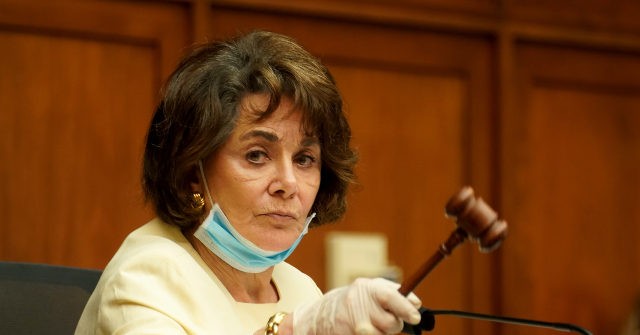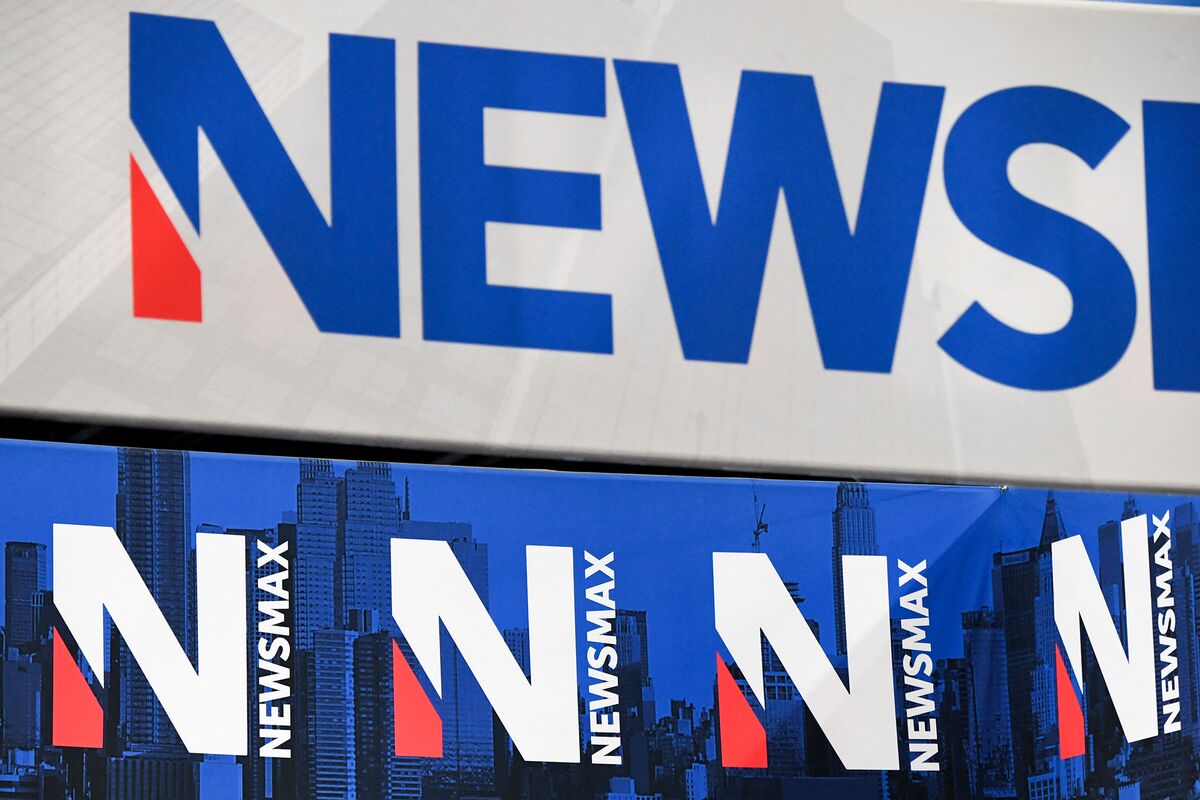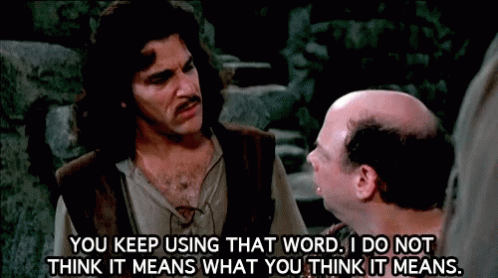Totally agree. OANN was not removed due to any market based reasons. Total political hit.

 www.breitbart.com
www.breitbart.com
By ALLUM BOKHARI16 Dec 2022
There is growing support among House Republicans for a congressional review of Democratic pressure tactics to suppress speech, from the Democratic Senator’s attempt to shut down Twitter to investigating the role of the Democratic Congress in AT&T and Verizon’s cancellation of One America News (OAN).
As Breitbart News previously reported in 2021, Democratic Reps Anna Eshoo (D-CA) and

Richard Drew/AP
(D-CA), who sit on House Commerce Committee wrote to the heads of the major cable and satellite companies including DirecTV, Verizon, Comcast, and Cox, expressing “concern” at cable companies allegedly “disseminating misinformation to millions of [its] subscribers, and we write to you to request additional information about what actions [each distributor] is taking to address these issues.”
Both Verizon and AT&T-owned DirecTV dropped OAN. AT&T also owns CNN, meaning DirecTV’s decision benefited a competing news outlet that they owned. The Commerce Committee oversees the FCC and the National Telecommunications and Information Agency, which both have major regulatory power over cable companies.
When Big Tech or Corporate Cable distributors censor, liberals and libertarians will frequently make the free market defense, arguing the First Amendment doesn’t apply to private companies. However, the fact that Congressional pressure appears to have been involved in the decision means that this is more than a private company making a decision in isolation.
This is increasingly the case with censorship decisions. Democrats are now using their political and regulatory clout to pressure companies into censoring their opposition as a standard operating procedure.
Documents revealed in Alex Berenson’s lawsuit against Twitter revealed that the White House had pressured Twitter to suspend Berenson’s account. The Biden administration also openly demanded social media companies censor more “disinformation”
Democrats in Congress are currently demanding the suppression of speech on Twitter. Reps. Adam Schiff (D-CA) and Mark Takano (D-CA) recently wrote a letter to Elon Musk, stating “we are deeply concerned about the recent rise in hate speech on Twitter” and that “ are concerned about the individual and community harm arising from Twitter, including how that could spill from online into real life.”
While Musk will likely ignore that type of moral blackmail, Senators Blumenthal (D-CT), Warren (D-MA), Booker (D-NJ), Markey (D-MA), Lujan (D-NM), and Menendez (D-NJ) wrote to the Federal Trade Commission on the need to address the supposed “campaigns of racist, misogynistic, and antisemitic harassment, attempting to exploit the change in ownership to spread hate and vitriol” on Twitter.
In 2021, Senators Klobuchar (D-MN) and Lujan wrote to Facebook, Twitter, and YouTube demanding they ban 12 specific users for alleged “COVID Misinformation.” Klobuchar then introduced the Health Misinformation Act, which would have stripped Section 230 protections for platforms.
Senate Majority Leader Chuck Schumer (D-NY) wrote to Fox News owner Rupert Murdoch to “urge you to immediately cease the reckless amplification of the so-called “Great Replacement” theory on your network’s broadcasts,” specifically claiming “A recent New York Times investigation found that Tucker Carlson alone amplified this dangerous and unfounded theory in more than 400 episodes of his show.” Of course to Schumer and the NY Times, merely noting that Democrats openly support from mass immigration to benefit electorally is promoting the “Great Replacement conspiracy theory.”
Adam Candeub, a law professor who served as President Trump’s head of the National Telecommunication and Information Agency notes there are few legal avenues to challenge the type of Congressional pressure Democrats have taken to.
“The First Amendment prohibits the government from threatening or pressuring private actors from censoring,” said Candeub. “Unfortunately, the precedent doesn’t adequately address the implied threats from Congress, and the courts have been reluctant to prevent these types of implied threats.”
“While the issue has never gotten to the Supreme Court, courts have typically found that the First Amendment does not protect against threats from legislators because they don’t ultimately have decision making or regulatory power.
Candueb says that unless the legal precedent changes, “Congressional Republicans should serve as a counterbalance and apply pressure to Cable or Tech companies who cave to Democratic demands of censorship.”
Representative Buddy Carter (R-GA) made efforts to investigate censorship by Big Tech and Telecom, particularly the role the Commerce Committee and FCC may have had in pressuring DirecTV and Verizon to drop OAN.
The Democrats blocked this, but Rep. Cathy McMorris Rogers (R-WA) who will chair the Commerce Committee next year, supported such efforts, raising the possibility of an investigation in the new Congress.
Allum Bokhari is the senior technology correspondent at Breitbart News. He is the author of #DELETED: Big Tech’s Battle to Erase the Trump Movement and Steal The Election.

Pressure Mounts for Investigation of Democrat Pressure Tactics in AT&T's OAN Censorship
There is growing support among House Republicans for a congressional review of Democratic pressure tactics to suppress speech, from the Democratic Senator’s attempt to shut down Twitter to investigating the role of the Democratic Congress in AT&T and Verizon's cancellation of One America News (OAN).
By ALLUM BOKHARI16 Dec 2022
There is growing support among House Republicans for a congressional review of Democratic pressure tactics to suppress speech, from the Democratic Senator’s attempt to shut down Twitter to investigating the role of the Democratic Congress in AT&T and Verizon’s cancellation of One America News (OAN).
As Breitbart News previously reported in 2021, Democratic Reps Anna Eshoo (D-CA) and

Richard Drew/AP
(D-CA), who sit on House Commerce Committee wrote to the heads of the major cable and satellite companies including DirecTV, Verizon, Comcast, and Cox, expressing “concern” at cable companies allegedly “disseminating misinformation to millions of [its] subscribers, and we write to you to request additional information about what actions [each distributor] is taking to address these issues.”
Both Verizon and AT&T-owned DirecTV dropped OAN. AT&T also owns CNN, meaning DirecTV’s decision benefited a competing news outlet that they owned. The Commerce Committee oversees the FCC and the National Telecommunications and Information Agency, which both have major regulatory power over cable companies.
When Big Tech or Corporate Cable distributors censor, liberals and libertarians will frequently make the free market defense, arguing the First Amendment doesn’t apply to private companies. However, the fact that Congressional pressure appears to have been involved in the decision means that this is more than a private company making a decision in isolation.
This is increasingly the case with censorship decisions. Democrats are now using their political and regulatory clout to pressure companies into censoring their opposition as a standard operating procedure.
Documents revealed in Alex Berenson’s lawsuit against Twitter revealed that the White House had pressured Twitter to suspend Berenson’s account. The Biden administration also openly demanded social media companies censor more “disinformation”
Democrats in Congress are currently demanding the suppression of speech on Twitter. Reps. Adam Schiff (D-CA) and Mark Takano (D-CA) recently wrote a letter to Elon Musk, stating “we are deeply concerned about the recent rise in hate speech on Twitter” and that “ are concerned about the individual and community harm arising from Twitter, including how that could spill from online into real life.”
While Musk will likely ignore that type of moral blackmail, Senators Blumenthal (D-CT), Warren (D-MA), Booker (D-NJ), Markey (D-MA), Lujan (D-NM), and Menendez (D-NJ) wrote to the Federal Trade Commission on the need to address the supposed “campaigns of racist, misogynistic, and antisemitic harassment, attempting to exploit the change in ownership to spread hate and vitriol” on Twitter.
In 2021, Senators Klobuchar (D-MN) and Lujan wrote to Facebook, Twitter, and YouTube demanding they ban 12 specific users for alleged “COVID Misinformation.” Klobuchar then introduced the Health Misinformation Act, which would have stripped Section 230 protections for platforms.
Senate Majority Leader Chuck Schumer (D-NY) wrote to Fox News owner Rupert Murdoch to “urge you to immediately cease the reckless amplification of the so-called “Great Replacement” theory on your network’s broadcasts,” specifically claiming “A recent New York Times investigation found that Tucker Carlson alone amplified this dangerous and unfounded theory in more than 400 episodes of his show.” Of course to Schumer and the NY Times, merely noting that Democrats openly support from mass immigration to benefit electorally is promoting the “Great Replacement conspiracy theory.”
Adam Candeub, a law professor who served as President Trump’s head of the National Telecommunication and Information Agency notes there are few legal avenues to challenge the type of Congressional pressure Democrats have taken to.
“The First Amendment prohibits the government from threatening or pressuring private actors from censoring,” said Candeub. “Unfortunately, the precedent doesn’t adequately address the implied threats from Congress, and the courts have been reluctant to prevent these types of implied threats.”
“While the issue has never gotten to the Supreme Court, courts have typically found that the First Amendment does not protect against threats from legislators because they don’t ultimately have decision making or regulatory power.
Candueb says that unless the legal precedent changes, “Congressional Republicans should serve as a counterbalance and apply pressure to Cable or Tech companies who cave to Democratic demands of censorship.”
Representative Buddy Carter (R-GA) made efforts to investigate censorship by Big Tech and Telecom, particularly the role the Commerce Committee and FCC may have had in pressuring DirecTV and Verizon to drop OAN.
The Democrats blocked this, but Rep. Cathy McMorris Rogers (R-WA) who will chair the Commerce Committee next year, supported such efforts, raising the possibility of an investigation in the new Congress.
Allum Bokhari is the senior technology correspondent at Breitbart News. He is the author of #DELETED: Big Tech’s Battle to Erase the Trump Movement and Steal The Election.



